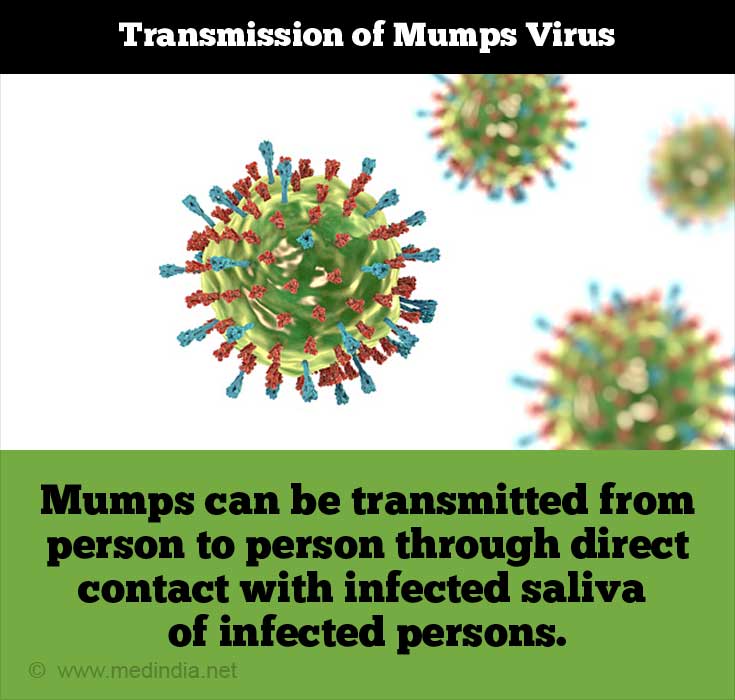What are the Causes of Mumps?
Mumps is caused by a virus known as a paramyxovirus.
It is transmitted from person to person mainly through direct contact with infected saliva and discharges from the nose or throat of infected persons. Mumps can spread by coughing, sneezing, or even talking.
The saliva is infectious for approximately six days prior to the onset of swelling of the salivary glands in the cheeks (especially the parotid glands). The individual may be infectious for up to two weeks after the onset of swelling of the salivary glands, but the peak period of infectivity is from a day or two before the onset of the swelling until very shortly after the swelling begins.
Risk factors for developing mumps include -
- Failure to be immunized - Persons who have not been immunized against mumps are the main risk group. Unvaccinated school-aged children are most at risk.
- Age - The highest risk of contracting mumps is for 2-12 year old children.
- Season - Epidemics of mumps are most likely during the winter/spring.
- Travel to high-risk areas of the world - Africa, Indian subcontinent region and Southeast Asia are considered to be high-risk areas as these areas have a very low rate of vaccination.
- Immuno suppressed people - Weakening of the immune system either due to diseases like HIV, AIDS or cancer; or use of steroids for a prolonged period.

















